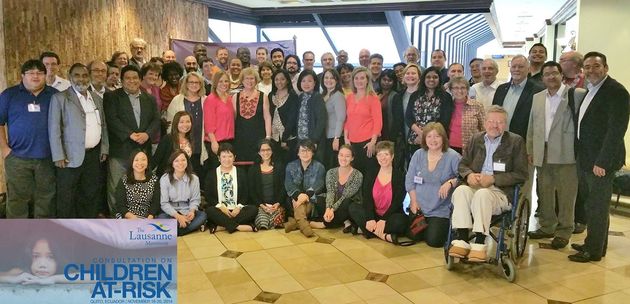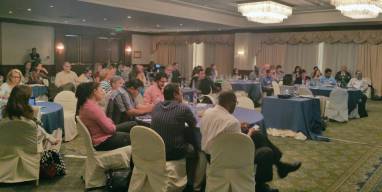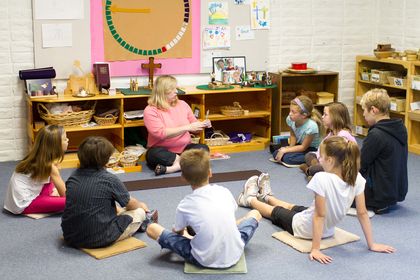The Quito Call to Action on Children at Risk analyses how church has usually failed in recognising children’s needs and their role in church. The Lausanne Movement network propels ways to include children in the mission.
 Lausanne Consultation on Children at Risk, took place in November, 2014 in Quito, Ecuador
Lausanne Consultation on Children at Risk, took place in November, 2014 in Quito, Ecuador
The Lausanne Children at Risk Network, along with Anne-Christine Bataillard, Senior Associate for Evangelism among Children, have published the “Quito Call to Action on Children at Risk” document.
The document is the result of the Lausanne Consultation on Children at Risk, which took place from 17-19 November, 2014 in Quito, Ecuador.
More than 60 participants came from every continent, including theologians, church leaders, missiologists, academics, and representatives from child-focused non-governmental organizations.
The event was held in response to the Cape Town Commitment (CTC), which emphasizes ministry with the poor, enslaved, and oppressed. It also calls the people of God to engage in study, training, and action on behalf of children-at-risk.
All participant´s goal was “to better understand what it would look like for children-at-risk to be meaningfully incorporated in the mission of the Church.”
WHO ARE THE CHILDREN AT RISK?
According to the Quito Call to Action document, children at risk are “persons under 18 who experience an intense and/or chronic risk factor, or a combination of risk factors in personal, environmental and/or relational domains that prevent them from pursuing and fulfilling their God-given potential.”
The Lausanne statement specially emphasised “situations where children experience significant unmet needs, and where outside engagement is most urgent.” This includes “all aspects of human experience: spiritual, physical, social, emotional, mental, linguistic, environmental, etc.”
 Lausanne Children at Risk Network
Lausanne Children at Risk NetworkThey also believed that there is “an emerging change in adult understandings of the active and vital roles that children play in mission.”
FAILING TO RECOGNISE CHILDREN´S NEEDS AND CAPACITIES
The Quito Call to Action recognises that Christians “often failed to fully understand and practice mission to, for, and with children”, not always fulfilling their responsibilities, and even “undervaluing children as co-labourers with adults in God’s mission.”
The document also denounces “the suffering and exploitation of children-at-risk around the world”, and admits the ways and times that Christians have failed to act for children.
“Failing to meet children’s most obvious needs when we see them only as souls to be saved”, or “entertaining children-at-risk with a gospel message that does not address the suffering they face”, are some of the examples given by experts in Quito.
All of this brings them to “give thanks for how the Bible presents children, and especially for the life, actions, and words of Jesus Christ. It is because of his example that we affirm a high view of children as whole human beings created with dignity.”
A MISSION TO, FOR, AND WITH CHILDREN
The Call to Action stresses the importance of the involvement of families, churches, denominations, mission organizations, non-governmental organizations, schools, and individuals in a mission:
 The network propels ways to include children in the mission.
The network propels ways to include children in the mission.
QUITO CALL TO ACTION´S GOALS
The document hopes to be “inspiration and encouragement to implement actions together with the global church.”
“Our ministry practices must be biblically-informed. We call ourselves to action to address children’s life-threatening injustices and abuses, empowering them as vulnerable agents of God”, the statement concludes.
FUTURE STEPS
The Lausanne Children at Risk Network´s next step will be “to write a Lausanne Occasional Paper (LOP) on Children at Risk.”
They also “plan to use the Call to Action as a major reference document for workshop discussions at the 2016 Younger Leaders Gathering”

Las opiniones vertidas por nuestros colaboradores se realizan a nivel personal, pudiendo coincidir o no con la postura de la dirección de Protestante Digital.
Si quieres comentar o